Protecting Our Waters & Environment
What’s the Big Deal?

My husband's Aunt, as the oldest sibling of her generation in the family, outlived all of her four sisters and brothers, so she is now the matriarch of the family... she's like 97 now I believe. So I do my part in helping to take care of her since she lives about two miles away. The last time I did grocery shopping for her I realized I forgot to pick up the old, body weight scale she gave me a few visits prior. I very willingly accepted it, because she said she wants to start lessening her load of material items in her home, and it seemed very well made; and when it comes to older, true quality products, I am definitely not a part of the throw-away society, just because it is not modern.
Then, the #1 man in my life looked at me in disbelief when I got home, holding it with reverence, close to my heart chakra, determined to keep this "gem" - So, he's reading my body language and is like REALLY!? He then manages to find the words for his frustration and says "Come on Baby! We do not need another scale... Plus, that's old as hell!" based on his reaction to me bringing this simple little scale into the house, you would think that I am an extremist hoarder! But that is far from the truth, my friend. I’m really not that bad! His issues were that we have one digital scale already, and he usually prefers those more modern designs than me - from furniture to carpets. On most topics we agree, but we just do not see eye-to-eye on a few things; this being one of them.
So, my response aims to patiently explain now - the oldness of it, is precisely why I want to keep the scale! He eventually agreed, especially after my points were made and I told him that "I will keep it in my "Shakeenah-Cave", and you will not even see it, okay?"
I proceeded to wipe down the old, solid metal framed, analog scale, and gave it a new home, right here in my room. I stood on it. and observed my weight and thought - now I don't have to be concerned about replacing batteries, and then wondering for the 100th time; “hmmm…I wonder if the city will ever get a battery disposal program launched”. Every time I throw away some batteries, my heart aches a little from the thought of how many millions of us are doing the same, and knowing where the poisons end up, and wondering how long can or will the planet tolerate the massive amounts of waste we create and dumped on her and into her with reckless abandon.
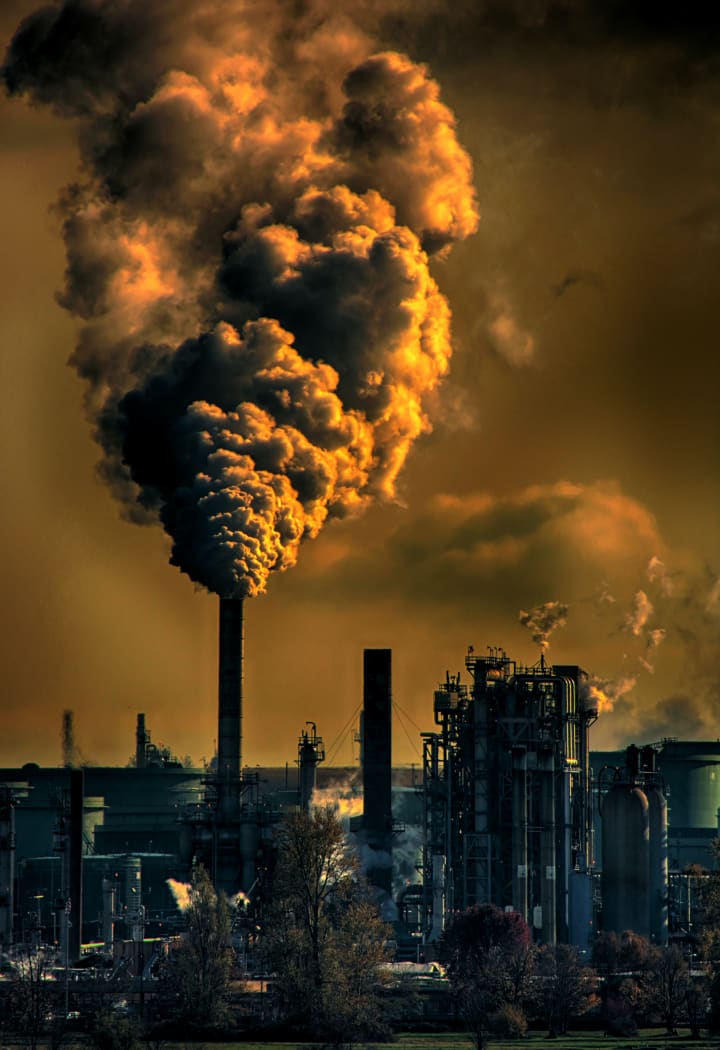
These thoughts arose out of the little bits and pieces of knowledge I've gained over the decade; from the first environmental video I've watched in the 1990’s, called "Diet for a New America, by John Robbins (the son of the owner of Baskin-Robbins ice cream stores. By the way, John Robbins disowned his inheritance of the business, once he became aware of factory farming's carbon footprint and other very detrimental effects on the environment, people, and animals), all the way to a less known man named Neil S Cohen; author of a book titled "No Denial! A Handbook for Becoming a Socially, Environmentally, and Personally Responsible Citizen of Planet Earth." I became aware of this book during the early 1990s, while I was serving in the capacity of assistant manager to a metaphysical store and gift shop in New Orleans.
Neil was a true messenger, helping to lead the way for others to become more aware of what is going on, to the extent that he said the following in the front of his book, first published in July of 1991: "For the purpose of expanding public awareness regarding important environmental, animal rights, and personal health issues, the totality of this manuscript, or any portion thereof, may be freely duplicated." The last time I spoke directly with Neil, he was saying the same thing; he wanted us to freely share the information in his book by any means we saw fit! At first I thought the guy was nuts to hand over the rights to his book in that way! But, then I realized how committed he was when I actually read that second page in his book; stating just what he wanted to happen and why.

Being a vegan already, I was becoming more and more aware of the environmental issues that we face here on Earth, because these issues also tied into some of my reasons to choose being plant-based. Therefore, along with the few lifestyle adjustments I have been practicing all along, my intent is to continue finding ways that I can reduce my personal contribution to greenhouse gases and such, becoming more of a responsible citizen of planet Earth. I can’t help but think that mother earth is intentionally trying to kick our ‘azzes’ when she starts whipping out these horrendous storms, fires, earthquakes and such!
MY CURRENT PRACTICES INCLUDE:
1. Biodegradable soaps - laundry, dish, and try to buy the most non-toxic products that I can find.
2. I select food products that have no synthetic colorings, flavors, preservatives, or other complicated ingredients.
3. I choose body care products that have no synthetic dyes, preservatives, or other harsh ingredients; and sometimes that means making my own.
4. I make my own herbicides, insecticides, or pesticides, if, and when they are needed.
5. I mix my own house cleaning fluids when I can't find a "green" product at the store.
6. I think about our water supply for everyday usage, and bless it with gratitude while I shower, wash clothes or dishes.
7. We send recyclable stuff to the city's recycling program.
THINGS I INTEND TO DO IN THE NEAREST POSSIBLE FUTURE:
1. We have already investigated the possibility of using solar panels for our home, however we were told by one company, that the small amount of energy we currently used would not make it cost-effective to get the solar panels installed. Therefore, when the need or opportunity arises, (if we move) we will begin using solar power or other renewable energy source to power our home. (I am so glad that my husband and I see eye-to-eye on that one!). Since we already conserve our energy pretty much; going solar or utilizing some other renewable energy source will be the next level of activism for me!
2. Begin eating MORE ORGANIC foods. More on this topic later in this article.
3. I will wear mostly sustainably produced clothing. Sustainable fashions take into consideration ecological integrity, social justice and more; the steps taken to create the fabric and the garments, from start to finish, are supposed to be carefully considered to produce them via a less environmentally harmful process...But, Ooohsahhh – what an expensive choice at this time! We went shopping recently in a large department store, searching for some nice bathroom rugs. When I saw the nearly $100 price tag on this 100% cotton, very nice design, that may have been a sustainable product, I was like HECK NO! (Yes, I realize I may have went contrary to the laws of attracting wealth on that one! If you know what I mean - don’t be too hard on me!) However, I DO realize that I am attracting these sorts of goods into my life now, because awareness of these issues are increasing, and thus the demand is increasing for things like organic food and organic or sustainable clothing, and therefore the more the prices will begin to go down on these item.
4. Be more mindful of pre-cycling, and other solutions to our solid waste issues on this planet. To understand “Pre-cycling” – liken it to the slogan “Prevention is Better Than Cure”. More on this topic later in this article.
5. Get a “green” car one day. However, not one of those little ant-head looking ones… those scare me a little bit. I know they will create a better-looking design soon. Trust me, I am not the only one who doesn’t like the way those current green tiny car designs look.
Now, I need to share a little bit about WHY all these action steps are important to me. The following are some explanations from Neil's book, that clearly expounds upon the issues, and precisely what needs to be done about them.
As Neil explains Eating All Organic is a solution because of
PESTICIDES:
..."As consumers, we are not adequately protected from unsafe pesticide residues. The Food and Drug Administration (FDA), samples only about 1% of our food supply. It's routine testing can only detect about 1/2 of the pesticides that may be present in our food. In addition there are so many delays in the FDA Laboratory Testing of food, that by the time illegal pesticide contamination of food is detected, the food will probably have been sold and consumed.
The Environmental Protection agency's (EPA) pesticide program came under examination by the government accounting office at the request of Congress. It was found that the EPA has failed to evaluate the safety of a major portion of the chemical pesticides presently in use. We still don't know the health and environmental risks of roughly 50,000 pesticide presently in use today. Did you know that companies are allowed to export deadly pesticides banned in the U.S., Canada, and Europe to developing countries for use in their export agriculture? That means these carcinogenic pesticides still generate profit from their sales, and then return to the United States on imported foods which end up on our dinner tables! (Hmmm…now I must be more mindful when I go get that bag of Jasmine or Basmati rice)
“Mothers and Others For Pesticide Limits, have compiled the following list of some of the most dangerous pesticides posing the greatest threat for children and obviously adults as well:
• Daminozide (also known as alar): its use has supposedly been halted and sales banned in the U.S., but overseas sales of alar continue. Beware - up to 50% of the apple juice concentrate sold in this country is made with foreign apples. Daminozide is sprayed on apples and other fruits to improve their appearance, increase their shelf life, and make harvesting easier. Daminozide breaks down into UDMH when the fruit is processed into products such as applesauce and Juice.
• UDMH is a potent carcinogen.
• Mancozeb, is a fungicide used primarily on tomatoes, potatoes, and apples. During processing it breaks down into
• ETU, which is carcinogenic and otherwise highly toxic.
• Captan: a carcinogenic fungicide used on strawberries and other fruits.
• Methamidophos, Parathion, Methyl Parathion, and Diazinon: all of these are 'organophosphate' insecticides that can cause nervous system damage.
This is only a small sampling of the Hazardous pesticides and other chemicals being used on the foods we eat. If they pose a threat to our children, it is certain that they are dangerous for all human and animal life on the planet as well!"
(NO DENIAL: Page 30)
ORGANIC FOODS:
I do realize that every time I purchase conventionally grown produce or products, made from strictly commercially motivated sources, I am supporting the present agricultural system and its environmentally destructive growing practices. The first step for protecting ourselves from the pesticides used in our food supply, and letting out actions be felt, is to purchase organically grown food whenever possible. This is my goal - to get more active in that choice. Certified organic food was grown without the use of synthetic fertilizers, pesticides, herbicides, or growth regulators. (like growth regulators that make the cow grow super-fast? Do you think that might also affect our children in the same way when they eat lots of beef?)
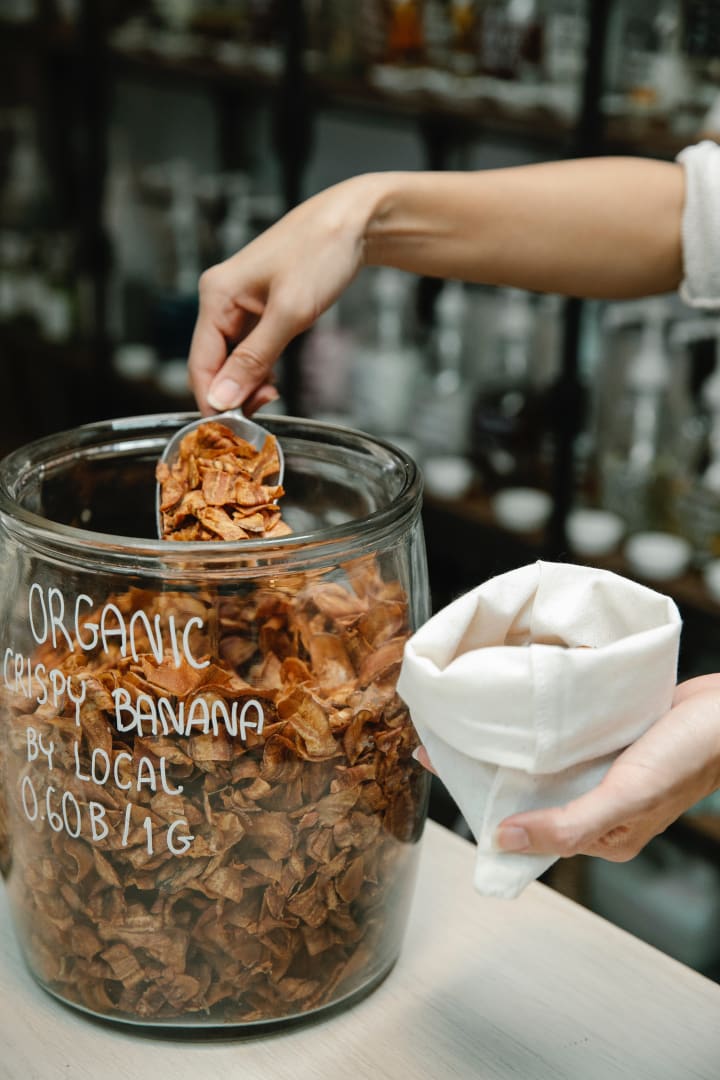
When using organically grown food I am respecting my own health, the health of my family, supporting the gardeners and farmers who see the importance of organics as well, and supporting the health of our environment. This choice helps to prevent soil erosion and to preserve the natural ability of farmlands to produce nutrient-rich foods for our future, as practiced by the original inhabitants of this country.
When we buy organic food, we are exercising our power as a consumer, showing grocers and farmers that food contaminated with toxic pesticides is completely unacceptable. I believe that buying organically grown foods is worth the extra effort and the sometimes, small extra expense... Even when the cost difference is more than I want to pay, if it is something I need, I remember that making these choices has been an important aspect of one way for me to have health insurance, although I would not want to depend on this 100% because of the possibility of emergency care insurance always being a good idea, it has been very effective so far in terms of prevention.
The author also offered recommendations for safe alternatives we can use in place of
TOXIC HOUSEHOLD PRODUCTS:
We must begin thinking more about what we pour down our drains or pour on the earth, as it ultimately ends up in our waters.

As most of us know, the plastic and chemically polluted waters of our earth are killing off marine life and poisoning the seafood that many people depend on to survive on as food.
... "Another facet of this issue is that many of the toxic chemicals used in our homes and offices are poured down the drain, thrown into the trash, and end up in landfills. This means these chemicals can and do pollute our air, water, and soil. Each day in the United States, we pour more than 32 million pounds of household cleaning products down the drain. That is almost 12 billion pounds per year!
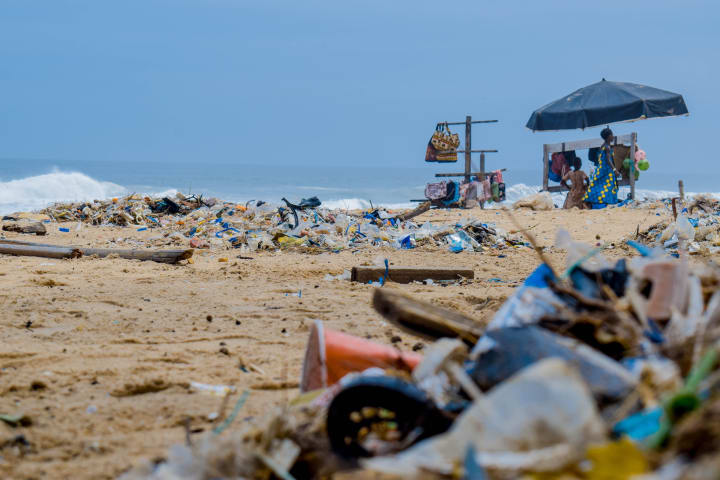
Let's not continue supporting companies who manufacture toxic household products. All the new and improved, easy, one step products simply end up poisoning us and our environment in new and improved ways also. Please be aware there are numerous safe alternatives to the common toxic household products we all use there are many reputable companies who offer these Alternatives, and they are excellent resource books available to show you how to make mini safe, non-toxic Alternatives using simple ingredients.

Ultimately, the solution is to clean up the waste that now exists in our water supplies and to find alternatives for Industries and pesticides, so that less toxic waste is produced in the first place. Realistically however, large-scale Solutions may take several decades. In the meantime, our health is possibly in danger unless we take personal measures to avoid the problems of increasing water contamination. We must stop supporting the use of toxic chemicals, pesticides, and fluoridation of all water supplies in any way we can. If you drink water from your tap, it would be a wise idea to utilize a high-quality water pure navigation system."
(NO DENIAL: pages 83, 88)

He then goes on to offer
TIPS for how we can MAKE A DIFFERENCE IN OUR WATERS:
• “Avoid using toxic chemicals in and around your home or office. If you must use them, he suggests that you do not pour unused or leftover paint, cleaning agents, solvents, or any other chemicals down the drain.”
• “Do not use commercial pesticides or herbicides to create a beautiful lawn. There are numbers of excellent, natural, non-toxic alternatives that will produce the same results. Please take the time to find and use these alternatives.”
Example: my husband keeps the lawn mowed, and sometimes wants to get rid of the grass or other plant life that creeps up in the areas he does not want them. So for a "weed" killer, I have made some for him, and I know exactly what your thought is right now… “but does it WORK?” and the answer is YES! It works, especially if applied when the weeds are small! The formula usually calls for something like:
½ gallon of vinegar
½ cup of salt
2 tablespoons of dish soap
Vinegar contains acetic acid, a chemical with herbicidal properties; it is commonly used by organic gardeners and farmers as an herbicide. Salt (sodium chloride) has herbicidal properties. And the soap is added to increase the spreading of droplets on the weed leaf surface. Most commercial herbicides also contain surfactants (soaps) for this purpose. This combo of acetic acid, salt, and soap will certainly kill many annual weeds.
• “Purchase products that do not pollute the water. Several soaps and detergents contain phosphates and other substances that pollute the water supply. There are safe alternatives to these products, usually available at natural food stores.”
(At this time, 2021, there are many more types of stores that carry safer alternatives, besides the health food stores, because the demand for these products have increased)
• He also advised that, “if you feel a factory or other business in your community is dumping harmful substances into local waterways, report them immediately to local or federal officials.”
(I would also suggest that one do so anonymously!... His suggestion reminded me of a recent post I saw on FB. One young lady delivered some food to a delivery app customer. To her surprise, there was a very young girl who opened the door and looked very unkept and dirty, and the house was grossly a mess. The deliverer asked everyone for advice; should she, or should she not call some authority to check on the wellbeing of this child. The overwhelming majority of her responses were to please call, and that she may be that child's salvation, etc. The point being that, if out of genuine concern, no one notifies someone that will investigate a questionable situation and act accordingly, then it is very unlikely that anything will be done to stop the abuse of commercial freedoms just like personal freedoms.
• “Consider buying a solid carbon block filter (several companies make these; one of the best was "Multi-Pure" at the time of his manuscript creation in 1991). Note: these types of filters have proven to be most effective for removing toxic chemicals from drinking water. Solid carbon block filters are not to be confused with granular or powdered carbon filters, which are extremely ineffective because water runs between the granules.”
• “Consider a home water distiller to make pure distilled water. This is not the optimum choice, since distillers are expensive and energy-intensive, but it is an excellent alternative to tap water.”
• “Bottled water from a reputable company is in alternative also but be aware of the facts colon it is expensive, and there are no laws stating that it has to be any purer than regular tap water. About one-third of bottled water is sold in non-biodegradable, non-recyclable, polluting plastic containers. Also, the amount of energy required for shipping water around the country in bottles is shocking (in addition to transportation fuel, tremendous energy goes into the production of the glass or plastic bottles).”
• “Put a de-chlorinator (a chlorine filter), or a shower filter of some type onto your shower to minimize the adverse effects of chlorinated water and possible toxic chemicals, algae, mildew, and odors. This can help reduce skin and scalp irritation also. It is estimated that while taking a 15-minute shower, one can absorb more chlorine then if they drink 8 glasses of water. This is something to consider.”
(information from Neil's NO DENIAL: page 88-89)
PRECYCLING & RECYCLING: A MAJOR SOLUTION FOR A MAJOR PROBLEM:

“Our society has become dangerously complacent with the habit of buying products for convenience. We simply throw away almost everything we use after we are finished with it. Unfortunately, a large percentage of these disposable products are creating major environmental concerns…
…The most efficient way to alleviate the solid waste problem and its associated toxic repercussions, is to drastically reduce the amount of waste we produce in the first place. We can reduce the solid waste stream we create by “pre-cycling” and by actively participating in recycling programs.

Pre-cycling requires that we make intelligent and environmentally sensitive choices while shopping before we even purchase a product. The practice of pre-cycling helps reduce waste too, because we avoid buying products which are over packaged, environmentally harmful, and will need to be disposed of, or recycled later."
(NO DENIAL: page 69, 70. Please refer to the book for more in-depth suggestions and resources to assist)
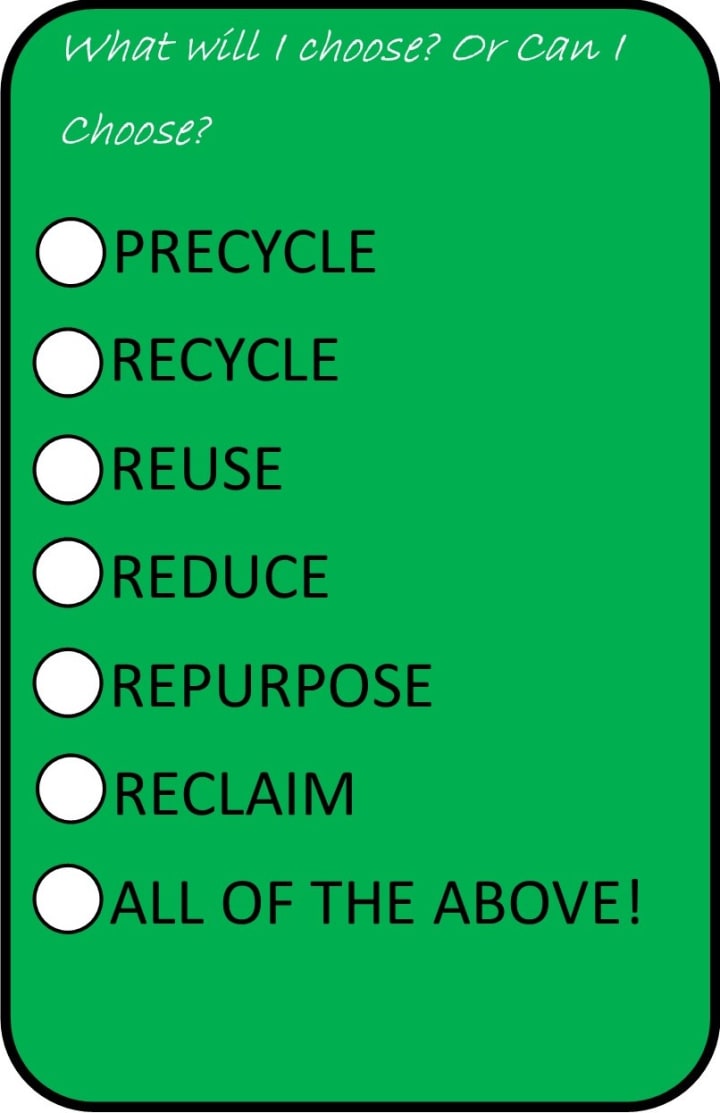
Finally, the
STEPS I WILL TAKE TOWARDS A MORE SUSTAINABLE PLANET:
As listed earlier, I intend to gradually add the FIVE MORE steps to the seven that I am currently practicing, to do more of my part to help our waters, our planet, our bodies, one step-at-a-time.
Those five goals that I listed are what I would like to attain to - before my time here is up. I hope to see a planet that has healed from the abuses of mankind at this time… A planet with most of its inhabitants being a more conscientious and actively "green" conscious people.
Sometimes it feels like a lonely journey for sure, but if those of us who know, just keep on practicing, and keep on sharing what we know, I believe we will be surprised at how many others are doing the same; putting in the effort, and how many we may have inspired to take their own steps towards positive change.

And lastly, what I will do, is keep this slightly heavy, ole' metal scale of mine, and use it for as long as I can... as it will be one less piece in a landfill, remind me of my efforts to walk lightly on the earth, and most of all, it works perfectly fine. <3
#carbonfootprint #protectourwaters
Thanks for your support. Peace Out! Shakeenah www.alternative-healing-solutions.com

About the Creator
Shakeenah K Fentis
Greetings
A non-ordinary, ordinary human, artist, holistic healing helper, etc. Here I share my thoughts, knowledge and experiences. My services & products are here: https://www.alternative-healing-solutions.com Thank You for your support


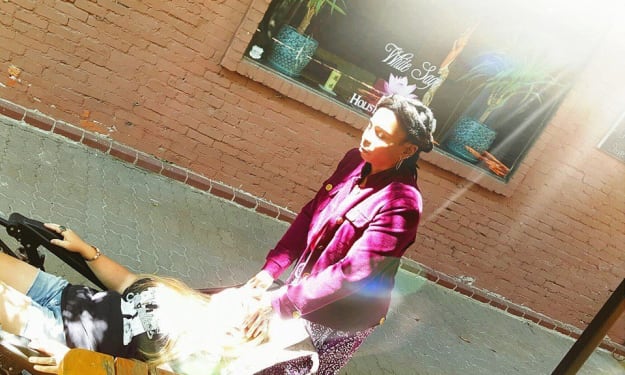



Comments
There are no comments for this story
Be the first to respond and start the conversation.